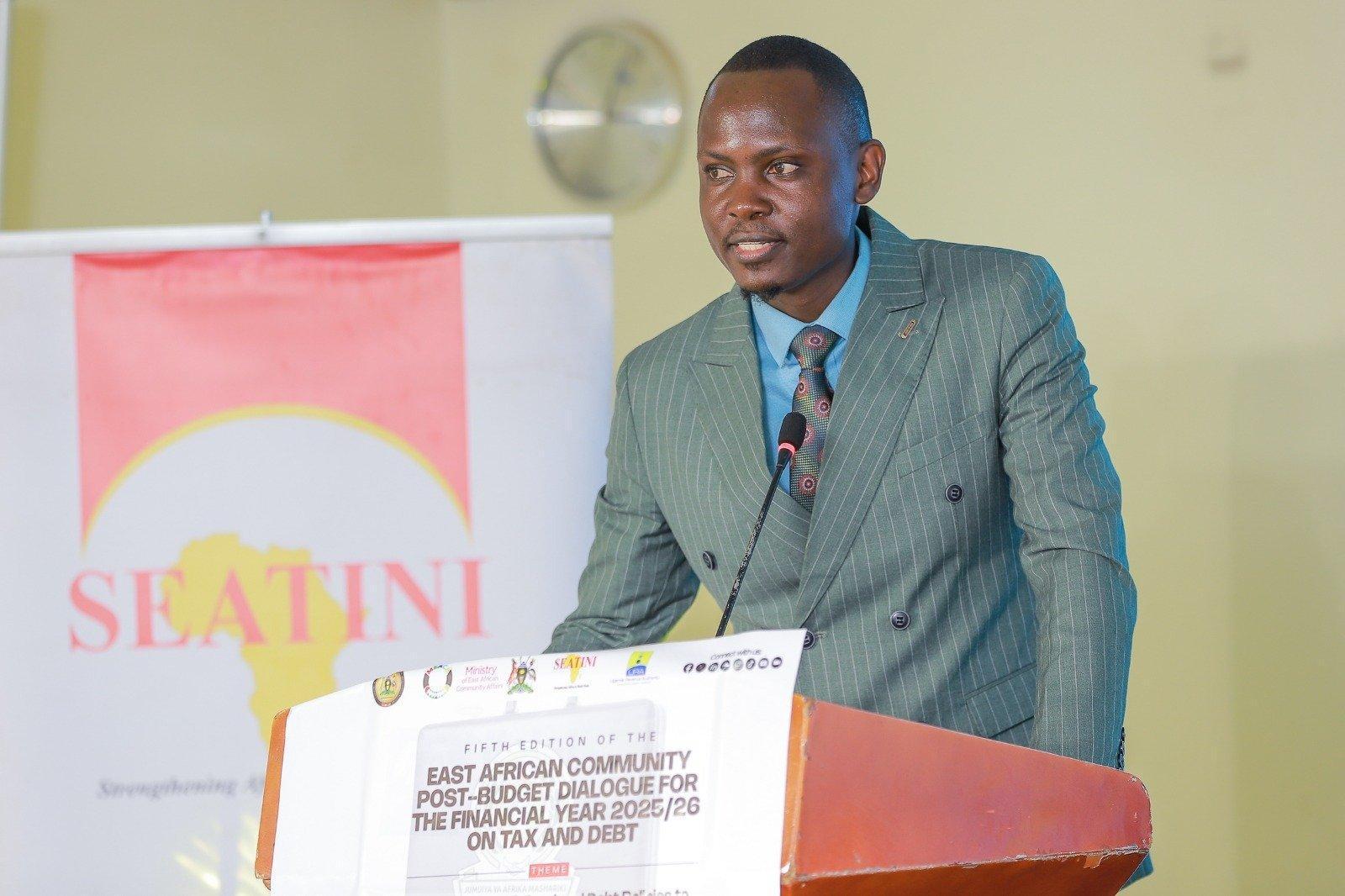Africa-Press – Uganda. Soaring public debt across East African Community (EAC) member states dominated the EAC Post-Budget Dialogue in Kampala, where civil society leaders and government officials called for urgent reforms to boost domestic revenue mobilization and reduce dependence on unsustainable borrowing.
According to Hilda Tumuhe, Program Officer for Debt and Aid at SEATINI Uganda, the region is increasingly constrained by high debt servicing obligations.
“In Kenya, 60 percent of domestic revenue, including grants, goes to servicing debt—excluding the principal—while Uganda spends around 33 percent, or approximately UGX 8.5 trillion,” she said.
“This severely limits investment in sectors like health, education, and climate resilience.”
Tumuhe warned that if left unchecked, the region’s debt trajectory could jeopardize economic growth and social development.
“Debt is not just a financial issue—it affects every citizen. Borrowing must be transparent, accountable, and aligned with national priorities.”
The dialogue, hosted by SEATINI Uganda in collaboration with the Ministry of Finance and the Ministry of East African Community Affairs, brought together policymakers, economists, civil society actors, and development partners to assess the implications of national and regional budget priorities.
One of the key challenges highlighted was the lack of preparedness in many debt-financed projects.
“Poor planning, land acquisition delays, and weak implementation continue to undermine value for money across the region,” said Herbert Kafeero, SEATINI Uganda’s Programs and Communications Manager.
With external aid on the decline and debt levels rising, Kafeero advocated for progressive, equitable, and gender-sensitive tax systems to underpin domestic revenue mobilization (DRM).
“We must tackle illicit financial flows, strengthen fiscal transparency, and broaden the tax base to restore public confidence in taxation,” he added.
In response to these fiscal pressures, the Ministry of Finance announced new measures to enhance domestic resource mobilization.
Paul Okitoi, commissioner for debt policy and issuance, said the government plans to launch a digital savings product enabling Ugandans to invest in government securities via mobile phones.
“This innovation will help mobilize domestic savings, increase citizen participation in public finance, and potentially lower borrowing costs,” he said.
Okitoi also noted a regional shift toward domestic and non-concessional borrowing to meet increasing financing needs.
While concessional loans from institutions like the World Bank and IMF remain essential, Uganda has adopted foreign exchange hedging using global benchmarks such as LIBOR, EURIBOR, and SOFR to reduce exposure to currency volatility.
He cited cost savings on Karuma Hydropower Dam loans as a success story of this approach.
Hon. George Stephen Odongo, Member of the East African Legislative Assembly (EALA) and Chairperson of Uganda’s EALA Chapter, emphasized the need for fiscal openness and responsible borrowing.
“Borrowing on behalf of citizens demands justification and transparency. Governments must treat public trust as central,” he said.
Odongo further underscored the importance of regional integration and trade as long-term financing tools.
“Investment, trade, and deeper integration are not luxuries—they are survival strategies for the EAC. They generate the revenue we need for infrastructure and development.”
As the region confronts growing debt and diminishing donor support, the post-budget dialogue highlighted a growing consensus: East African countries must rethink their financing models by investing in robust domestic systems, improving governance, and embracing innovative, inclusive economic strategies.
For More News And Analysis About Uganda Follow Africa-Press






